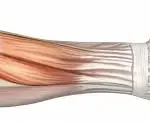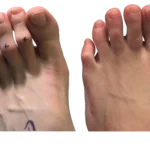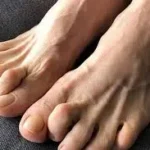Overview
Plantar Fasciitis is widely regarded as one of the most prevalent causes of heel pain and foot discomfort, affecting millions of individuals globally. This condition is particularly common among physically active individuals, such as runners, athletes, dancers, and those who spend long hours on their feet, as well as middle-aged adults whose soft tissues may naturally begin to lose elasticity and resilience with age. The defining feature of this condition is inflammation of the plantar fascia—a thick, fibrous tissue that runs along the sole of the foot, connecting the heel bone (calcaneus) to the base of the toes.
The plantar fascia serves a crucial biomechanical function, supporting the arch of the foot and aiding movement during everyday activities like walking, running, and standing. It functions as a passive support system for the medial longitudinal arch of the foot and acts like a shock-absorbing bowstring that helps stabilize the foot during walking, running, and jumping. Every step we take stretches this fascia, particularly during push-off when the foot bears the most weight. However, when subjected to repetitive stress, poor biomechanics, or sudden increases in physical activity, the fascia can become overloaded. This leads to the development of micro-tears in the tissue, which, over time, provoke inflammation, stiffness, and a persistent, stabbing pain most commonly felt at the heel—especially during the initial steps taken in the morning or after extended periods of inactivity.
This pathological process is known as Plantar Fasciitis, and if not addressed appropriately, it can lead to chronic pain, reduced mobility, and significant limitations in both occupational and recreational activities. Ignoring the condition may also cause individuals to develop compensatory movement patterns, potentially leading to additional issues in the knees, hips, or lower back.
At DMPhysios, a premier physiotherapy clinic located in Noida and renowned for its expertise in spine and sports-related conditions, individuals suffering from Plantar Fasciitis benefit from a comprehensive, patient-centered approach to care. The team at DMPhysios understands that no two cases of heel pain are alike, and treatment must be tailored accordingly. Through a blend of evidence-based clinical practice, biomechanical assessments, hands-on manual therapy, and guided rehabilitation exercises, DMPhysios empowers patients to not only relieve their immediate symptoms but also correct underlying dysfunctions and prevent the recurrence of Plantar Fasciitis in the long term.
By addressing both the symptoms and root causes, DMPhysios ensures that every patient receives the individualized attention and expert care necessary to return to a pain-free, active lifestyle. Whether you’re an athlete, a working professional, or simply someone struggling with chronic foot discomfort, DMPhysios offers the tools and guidance needed to restore function, enhance mobility, and improve quality of life.
Symptoms of Plantar Fasciitis
Plantar Fasciitis usually presents with characteristic signs and symptoms that make it relatively easy to identify. Key symptoms include:
- Intense heel pain, particularly during the first steps upon waking
- Stiffness or soreness in the arch of the foot
- Discomfort that intensifies after long periods of standing or walking
- Discomfort after intense activity, not necessarily during it
- Heel tenderness when pressure is applied
- A sensation of tightness in the calf or Achilles tendon
These symptoms often develop gradually and may be worse in one foot. Left untreated, Plantar Fasciitis can progress to chronic heel pain and even lead to compensatory problems in the knees, hips, or back.
Types of Plantar Fasciitis
While not officially categorized into medical subtypes, Plantar Fasciitis can present in varying clinical patterns:
- Acute Plantar Fasciitis
- Recent onset, typically due to a specific incident or sudden increase in activity
- Inflammation and swelling are more pronounced
- Chronic Plantar Fasciitis
- The pain has continued for over six months without significant improvement
- Involves degeneration of the fascia (plantar fasciosis) rather than active inflammation
- Harder to treat and may require more advanced interventions
- Insertional Plantar Fasciitis
- Pain localized where the fascia inserts into the heel bone
- More common in those with poor footwear or altered foot biomechanics
At DMPhysios in Noida, detailed clinical assessment helps distinguish these variations to ensure that rehabilitation strategies align with the type and severity of the condition.
Causes of Plantar Fasciitis
Plantar Fasciitis typically results from repetitive stress and microtrauma to the plantar fascia. Common causes include:
- Excessive use and repeated stress due to extended periods of standing or walking
- Poor foot biomechanics such as flat feet, high arches, or abnormal gait
- Improper footwear lacking adequate support or cushioning
- Sudden increase in physical activity without proper conditioning
- Tight calf muscles or Achilles tendon leading to strain on the heel
- Obesity, which places excessive pressure on the foot
- Walking or running on hard surfaces without appropriate footwear
Identifying the exact cause is crucial for effective treatment. The specialists at DMPhysios are trained to conduct thorough biomechanical evaluations to trace the origin of the stress affecting the plantar fascia.
Risk Factors
Certain individuals are more predisposed to Plantar Fasciitis due to intrinsic and extrinsic risk factors:
- Age: Most common between ages 40–60
- Occupation: Jobs involving prolonged standing (e.g., teachers, factory workers)
- Athletes: Especially runners, dancers, and jumpers
- Foot structure: Flat feet or high arches
- Improper training: Lack of warm-up or poor technique
- Weight gain: Increases pressure on the plantar fascia
- Sedentary lifestyle: Weakens foot and calf musculature
DMPhysios, a patient-centered physiotherapy clinic in Noida, emphasizes risk factor modification through education, lifestyle guidance, and therapeutic intervention, ensuring patients don’t just recover—they thrive.
Treatment of Plantar Fasciitis
Initial treatment for Plantar Fasciitis focuses on conservative approaches aimed at reducing inflammation, promoting healing, and restoring function.
Conservative Medical Approaches:
- Rest and Activity Modification: Avoid high-impact activities that aggravate pain
- Ice Therapy: Applying cold packs to the heel to reduce inflammation
- Nonsteroidal Anti-Inflammatory Drugs (NSAIDs): For pain relief and reducing swelling
- Supportive Footwear: Wearing shoes with good arch support and heel cushioning
- Orthotic Insoles: Custom shoe inserts to correct biomechanical faults
- Night Splints: To maintain a stretched position during sleep and reduce morning pain
In more resistant cases, interventions such as corticosteroid injections or shockwave therapy may be considered.
Physiotherapy Treatment for Plantar Fasciitis
At DMPhysios, physiotherapy for Plantar Fasciitis is not one-size-fits-all. Instead, it is tailored based on individual assessments, severity, and functional goals. Treatment typically includes the following:
1. Manual Therapy
- Deep tissue massage to release tension in the plantar fascia and calf muscles
- Myofascial release to improve circulation and reduce fascial restrictions
- Joint mobilizations for ankle and subtalar joints if stiffness is contributing to faulty biomechanics
2. Stretching Exercises
- Plantar fascia stretch: Pulling the toes back to stretch the bottom of the foot
- Calf stretches: Targeting both gastrocnemius and soleus muscles
- Toe towel curls: For strengthening the intrinsic muscles of the foot
3. Strengthening Regimen
- Foot intrinsic strengthening: Marble pick-ups, short foot exercises
- Ankle strengthening: Resistance band exercises for dorsiflexion and plantarflexion
- Hip and core activation: Especially in chronic cases where compensatory patterns develop
4. Taping Techniques
- Low-Dye taping can offload strain from the plantar fascia during walking and standing
5. Electrotherapy Modalities
- Ultrasound therapy: Promotes tissue healing
- Accelerated Healing Therapy: Advanced electrotherapy for better healing and recovery
6. Gait and Postural Correction
- Educating the patient on optimal walking and standing patterns
- Use of video gait analysis (available at DMPhysios, Noida) to correct stride issues
7. Education and Ergonomic Advice
- Training patients in self-care, appropriate footwear, weight management, and activity pacing
- Encouraging movement without overloading the fascia
Regular follow-up at DMPhysios ensures progress is tracked and treatment plans are dynamically adjusted.
Prevention of Plantar Fasciitis
Preventing Plantar Fasciitis is not only possible but crucial for individuals who are active, stand long hours, or have a history of foot issues. Preventive strategies include:
- Wearing appropriate footwear: Shoes that provide sufficient arch support and heel cushioning
- Maintaining flexibility: Stretching calves and plantar fascia regularly
- Gradual progression in physical activity
- Keeping a healthy body weight to minimize pressure on the feet
- Strengthening foot muscles to support arch stability
- Avoiding prolonged standing or walking on hard surfaces without breaks
The prevention protocols at DMPhysios are based on current clinical evidence and are customized according to each patient’s lifestyle and occupational needs.
Conclusion
Plantar Fasciitis is a painful and often persistent foot condition that can disrupt mobility, productivity, and overall well-being. However, with early intervention and a comprehensive treatment plan, most patients recover fully without the need for surgery. The key lies in addressing not just the symptoms but the root biomechanical causes.
At DMPhysios, a Noida-based center of excellence in spine and sports rehabilitation, the approach to Plantar Fasciitis is holistic and patient-centered. From detailed assessments and hands-on manual therapy to advanced rehabilitation techniques, DMPhysios ensures that every patient returns to an active and pain-free life.
If you’re struggling with Plantar Fasciitis or chronic heel pain, DMPhysios invites you to take the first step toward recovery. Visit us today for expert evaluation and a tailored rehabilitation plan that puts your goals at the center of care.
Let DMPhysios help you stand strong, walk easy, and live pain-free. Book your consultation today at our Noida clinic and experience physiotherapy that truly cares.









